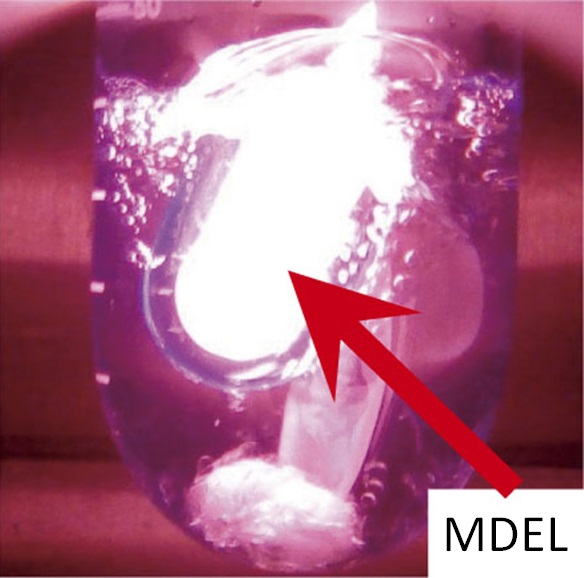2023.08.02

Faculty of Science and Technology / Department of Materials and Life Sciences
Horikoshi Satoshi Professor
Reference:http://pweb.cc.sophia.ac.jp/horikosi/
(1)Environmental conservation through microwave-assisted photocatalytic method
We discovered that by combining microwaves and photocatalysts, water treatment and air purification could be facilitated by tens and hundreds of times.
(2) Environmental cleansing device using a microwave discharge electrodeless lamp (MDEL)
We are developing and applying microwave discharge electrodeless lamps, which have no electrodes or cables.
Advantages of microwave discharge electrodeless lamps (MDEL):
・Given no degrading electrodes, the product lifetime of lamps are extended by several hundred-fold. (Lamps do not burn out.)
・Lamps can take different forms, as they are not defined by the electrodes.
・Lamps turn on quickly as temperature differences do not occur at the electrodes.
・Because it is electrodeless, the light intensity is not reduced.
・Electricity can be transmitted wirelessly from outside the container.
・Given no electric cables, lamps can be easily exchanged.


These technologies can be used as new environmental conservation technologies. They are especially suitable for the treatment of pollutants that are difficult to treat using existing methods.
The technology can be used as a light source for photo polymerization and photoisomerization.
We are currently developing a bench-scale prototype that can completely treat industrial waste water, halogen substituent-containing agrochemical water, recycled water, etc. at the rate of several tens of liters per hour
Microwave-assisted chemical synthesis device (7 types, in accordance with various conditions), microwave-assisted microwave discharge electrodeless device, photocatalyst assessment device, various analytical devices
The device is energy-saving, compact, easily operated, and maintenance-free. We seek joint research toward its practical use.
Other details: http://pub.nikkan.co.jp/books/detail/00002471